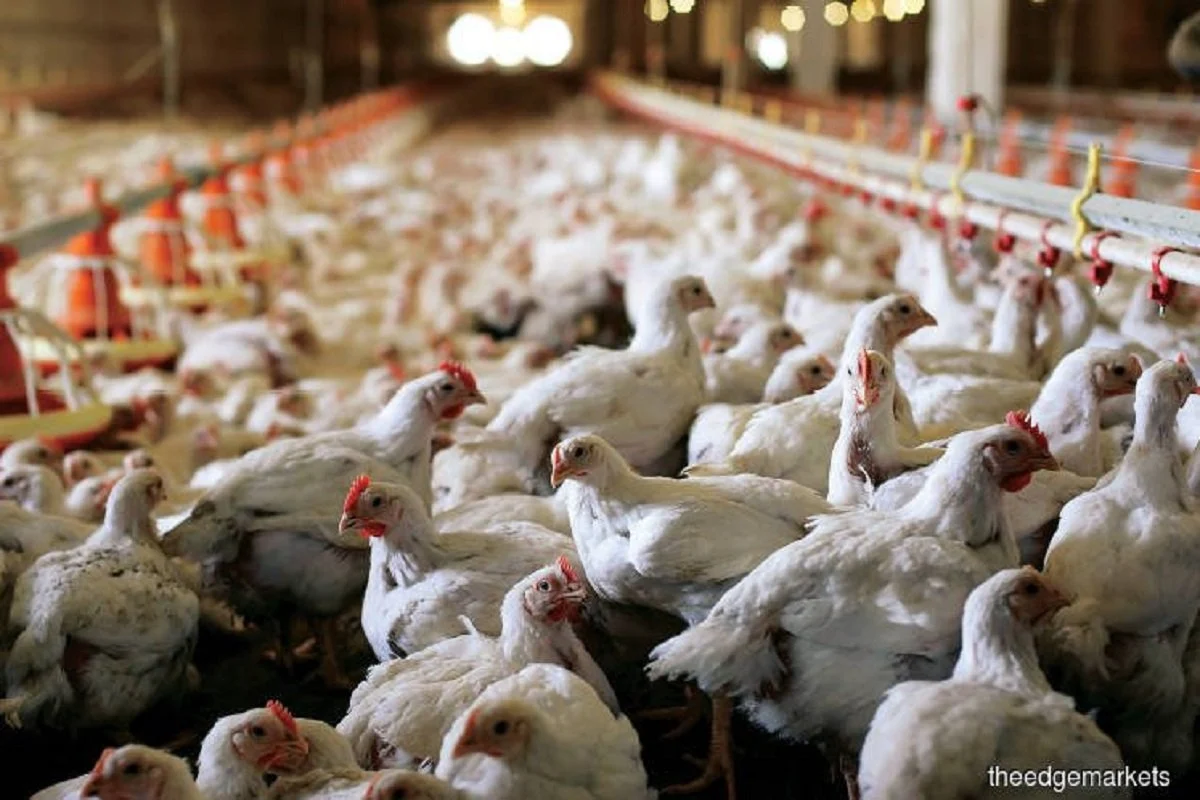Food protectionism spreads with Malaysia poultry export ban
 Malaysia’s government met with the country’s biggest poultry producers to discuss subsidies and ensure continuity of local supply as the nation moved to ban exports of chicken in the latest food protectionist move in the region.
Malaysia’s government met with the country’s biggest poultry producers to discuss subsidies and ensure continuity of local supply as the nation moved to ban exports of chicken in the latest food protectionist move in the region.
马来西亚政府与该国最大的家禽生产商会面,讨论补贴并确保当地供应的连续性,因为该国在该地区最新的食品保护主义举措中禁止出口鸡肉。
The agriculture and food industries minister met 12 producers and livestock groups including Leong Hup Poultry Farm Sdn Bhd, HLRB Broiler Farm Sdn Bhd, PWF Corporation Bhd and the Federation of Livestock Farmers’ Association of Malaysia on 23rd May, following a Cabinet meeting that discussed the ban.
农业和食品工业部长在内阁会议后于5月23日会见了 12 个生产商和畜牧业团体,包括 Leong Hup Poultry Farm Sdn Bhd、HLRB Broiler Farm Sdn Bhd、PWF Corporation Bhd 和马来西亚畜牧业农民协会联合会讨论了禁令。
Malaysia will halt exports of 3.6 million chickens a month from 1st June, and investigate allegations of cartel pricing, Prime Minister Datuk Seri Ismail Sabri Yaakob said on 23rd May . The move is likely to hit hard in Singapore, which sources a third of its supply from Malaysia, as well as in Thailand, Brunei, Japan and Hong Kong.
首相Datuk Seri Ismail Sabri Yaakob 于5月23日表示,马来西亚将从 6 月 1 日起停止每月出口 360 万只鸡,并调查有关卡特尔定价的指控。此举可能会在新加坡遭受重创,新加坡三分之一的供应来自马来西亚,以及泰国、文莱、日本和香港。
The ban is the latest in a series of government measures aimed at easing domestic prices as nations around the world battle rising food costs, partly driven by the war in Ukraine crimping food supplies. Indonesia recently temporarily banned palm oil exports, India restricted wheat exports, and Serbia and Kazakhstan have imposed quotas on grain shipments.
该禁令是政府一系列旨在缓和国内价格的最新举措,因为世界各国都在与不断上涨的食品成本作斗争,部分原因是乌克兰战争导致食品供应紧张。印度尼西亚最近暂时禁止棕榈油出口,印度限制小麦出口,塞尔维亚和哈萨克斯坦对粮食出口实行配额。
The Singapore Food Agency said the restriction may result in temporary disruptions to the supply of chilled chicken in the city state, and urged consumers to be open to switching to frozen chicken or other meat products. About 34% of Singapore’s chicken imports were from Malaysia last year, it said, with almost all imported as live chickens and slaughtered and chilled in the city state.
新加坡食品局表示,该限制可能会导致该城市国家的冷冻鸡肉供应暂时中断,并敦促消费者对改用冷冻鸡肉或其他肉类产品持开放态度。它说,去年新加坡大约 34% 的鸡肉进口来自马来西亚,几乎所有进口的都是活鸡,并在这个城市国家屠宰和冷藏。
“If the disruption to chicken supply is temporary, then it may be manageable,” said Selena Ling, the head of treasury research and strategy at OCBC Bank in Singapore. “But if it’s persistent and, more worryingly, reflective of more protectionist measures by other countries over food security and inflation concerns, then this could be a lose-lose scenario for everyone.”
“如果鸡肉供应中断是暂时的,那么它可能是可控的,”新加坡华侨银行资金研究和战略主管 Selena Ling 说。 “但如果这种情况持续存在,更令人担忧的是,这反映出其他国家在粮食安全和通胀问题上采取的更多保护主义措施,那么这对每个人来说都可能是双输的局面。”
The Malaysia Competition Commission is investigating reports that there are cartels that control the price and output of chicken among large companies, Ismail Sabri said, promising stern action against any firms found sabotaging supply.
马来西亚竞争委员会正在调查有关卡特尔控制大公司鸡肉价格和产量的报道,并承诺对任何发现破坏供应的公司采取严厉行动。
“If it’s true these cartels exist, we will take legal action against them,” he said. State news agency Bernama reported that there was a shortage of poultry locally as cartels had planned to stop farm operations over the weekend.
“如果这些卡特尔确实存在,我们将对他们采取法律行动,”他说。国家通讯社马新社报道说,由于卡特尔计划在周末停止农场经营,当地家禽短缺。
Last week, Ismail Sabri abolished the approved permit rules for imports of some food items including chicken, cabbage and evaporated milk to secure adequate food supplies in the country. Malaysia imports about 60% of its food needs, and has been impacted by higher import prices as well as a weakening ringgit.
上周,Ismail Sabri取消了一些食品的进口许可规定,包括鸡肉、卷心菜和淡奶,以确保该国有足够的食品供应。马来西亚进口约 60% 的食品需求,并受到进口价格上涨和令吉走弱的影响。
Malaysia’s food inflation is set to continue in the coming months amid elevated global commodity prices, domestic supply chain disruptions and depreciation of the local currency, researchers at MIDF Amanah Investment Bank wrote in a note on 23rd May. The country is highly exposed to global shocks in the food supply chain given its status as a net food importer, it said.
MIDF Amanah 投资银行的研究人员于5月23在一份报告中写道,由于全球大宗商品价格上涨、国内供应链中断和当地货币贬值,马来西亚的食品通胀将在未来几个月继续。鉴于其作为食品净进口国的地位,该国在食品供应链中受到全球冲击的风险很高。
Agriculture and Food Industry Minister Datuk Seri Dr Ronald Kiandee said the ban on chicken exports will be reviewed once supply and prices stabilise. Every country is taking similar measures to fulfil their own needs, he said on the sidelines of a ministry event. “We’re not looking at any other commodity for similar export restrictions for the time being.” Malaysia is the No. 2 producer of palm oil.
农业和食品工业部长Datuk Seri Ronald Kiandee 博士表示,一旦供应和价格稳定,将对鸡肉出口的禁令进行审查。他在一次事工活动的间隙说,每个国家都在采取类似的措施来满足自己的需求。 “我们暂时没有考虑对任何其他商品实施类似的出口限制。”马来西亚是第二大棕榈油生产国。
Farmers are already struggling with reduced weight gain among their chickens on account of the quality of their feed, as well as diseases and extremely hot weather, according to the Ministry of Agriculture and Food Industries. “This has affected the supply of chicken in certain areas,” it said in a statement on Sunday.
据农业和食品工业部称,由于饲料质量、疾病和极端炎热的天气,农民已经在努力减少鸡的体重增加。 “这影响了某些地区的鸡肉供应,”它在周日的一份声明中说。
In 2020, Malaysia exported poultry meat worth US$18.9 million (about RM82.96 million), making it the 49th largest exporter of the product in the world.
2020 年,马来西亚出口了价值 1890 万美元(约合 8296 万令吉)的禽肉,成为全球第 49 大禽肉出口国。
